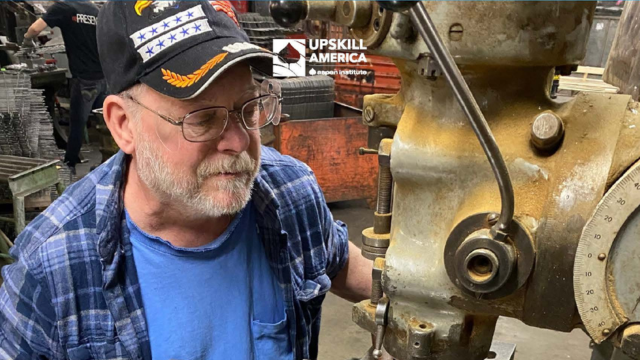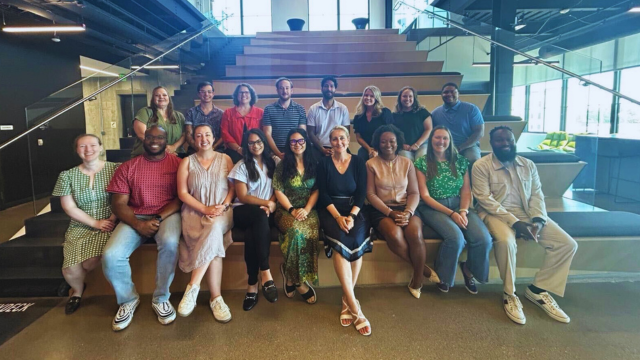Investing in People Is an Investment in the Business: Talent Development Leads to Strong Business Outcomes

Chelsea Miller
Associate Director
Overview
Marlin Steel specializes in manufacturing products from steel wire and sheet metal and serves a variety of industries with custom products and processes. With 130 employees working across three plants and a footprint of over 200,000 square feet, the company has undergone significant changes over the past 28 years.
When Drew Greenblatt purchased Marlin Steel in 1998, the company was a small manufacturing shop operating in Baltimore with fewer than 20 employees. The company specialized in baskets typically used in bagel shops. Seeing an opportunity for expansion, Greenblatt moved the company into new industries, including aerospace, automotive, and food processing. As a result, Marlin Steel now has roughly 130 employees across multiple factories. The organization focused squarely on supporting employees with sustainable wages and benefits. “When I bought the company, none of the employees had benefits, and none owned a home nor a car,” Greenblatt recalled. “Today, every employee has benefits, and most own both. That changes families.”
When Marlin Steel faced low-cost overseas competitors and market changes, they shifted their focus from commodity products to high-value, custom-engineered solutions for industrial customers. Guided by their trademarked motto, “Quality Engineered Quick,” Marlin Steel was able to command higher prices, grow its business rapidly, and insulate itself from price wars and market fluctuations. This pivot required investment in automation and advanced manufacturing and delivered a 35-fold increase in sales. As a result, Marlin Steel earned industry recognition, like the National Metalworking Reshoring Award in Chicago, Illinois, on September 11, 2025.
Solid growth followed, along with national attention. Marlin Steel, and particularly Greenblatt’s innovative approaches to talent development, drew notice from Forbes, The Washington Post, Inc., and the Aspen Institute, highlighting the company’s innovative competitiveness strategy: investment in skills, a nonnegotiable emphasis on quality, and a caring workplace culture.
This case study shares Marlin Steel’s story over the past decade and illustrates a compelling model for how intentional investment in talent fosters competitive businesses and personal growth. As employers across the country struggle to find ways to retain and develop talent, Marlin Steel demonstrates how prioritizing employees can generate significant returns for the business.
About UpSkill America
UpSkill America, an initiative of the Economic Opportunities Program, supports employers and workforce organizations to expand and improve high-quality educational and career advancement opportunities for America’s front-line workers.
About the Economic Opportunities Program
The Aspen Institute Economic Opportunities Program advances strategies, policies, and ideas to help low- and moderate-income people thrive in a changing economy.
Join Our Mailing List
To receive occasional emails about our work — including new publications, commentary, events, fellowships, and more — join our mailing list.
Connect on Social Media
For news and updates every day, connect with us on the social media platform of your choice.







